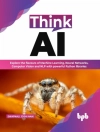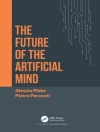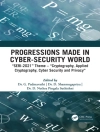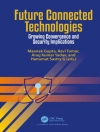The series of Online World Conferences on Soft Computing (WSC) is organized by the World Federation of Soft Computing (WFSC) and has become an established annual event in the academic calendar and was already held for the 8th time in 2003. Starting as a small workshop held at Nagoya University, Japan in 1994 it has – tured to the premier online event on soft computing in industrial applications. It has been hosted by the universities of Granada, Spain, Fraunhofer Gesellschaft, Berlin, Cran?eld University, Helsinki University of Technology and Nagoya University. The goal of WFSC is to promote soft computing across the world, by using the internet as a forum for virtual technical discussion and publishing at no cost to authors and participants. The of?cial journal of the World Federation on Soft Computing is the journal Applied Soft Computing. The 8th WSC Conference (WSC8) took place from September 29th to October 10th, 2003. Registered participants had the opportunity to follow and discuss the online presentations of authors from all over the world. Out of more than 60 subm- sions the program committee had accepted 27 papers for ?nal presentation at WSC8.
Inhaltsverzeichnis
Keynote Papers.- Discovery of Fuzzy Temporal Associations in Multiple Data Streams.- Applications of Soft Computing in Traffic and Transportation Systems.- Soft Computing Applications in Traffic and Transport Systems: A Review.- Estimation of Public Transport Trips By Feed Forward Back Propagation Artificial Neural Networks; A Case Study For Istanbul.- Clustering of Activity Patterns Using Genetic Algorithms.- A Mathematical Model for Evaluation of Information Effects in ATIS (Advanced Traveler Information Systems) Environment.- Evolutionary Algorithms I.- Interactive Evolutionary Computation in Identification of Dynamical Systems.- Replacement Strategies to Maintain Useful Diversity in Steady-State Genetic Algorithms.- Hierarchical Modelling of Evolutionary Computation.- An ALife-Inspired Evolutionary Algorithm for Dynamic Multiobjective Optimization Problems.- Evolutionary Algorithms II.- Optimum Tests Selection for Analog Circuits with the Use of Genetic Algorithm.- Unsupervised Pixel Clustering in Multispectral Images by Genetic Programming.- A Genetic Programming System for Time Series Prediction and Its Application to El Niño Forecast.- Evolutionary Optimization of Parametric Models: the Test Case of Combustion in a Diesel Engine.- Fuzzy Systems and Neural Networks.- Rule Learning and Extraction Using a Hybrid Neural Network: A Case Study on Fault Detection and Diagnosis.- Applying the Potentiality of Using Fuzzy Logic in PID Control Design.- Wavelet Neural Networks and Its Applications in Chaotic Systems Identification.- Fuzzy Specializations and Aggregation Operator Design in Competence — Based Human Resource Selection.- Data Analysis.- Personalizing Information Services for Mobile Users.- Detecting and Verifying Dissimilar Patterns in Unlabelled Data.-UPoet: A 3D Agent Able to Compose Short Poems.- A Study on the Combination of Evolutionary Algorithms and Stratified Strategies for Training Set Selection in Data Mining.- Soft Computing for Modeling, Optimization and Information Processing.- Predictive Controller Tuning Using Modified Particle Swarm Optimization Based on Cauchy and Gaussian Distributions.- A Realistic Information Retrieval Environment to Validate a Multiobjective GA-P Algorithm for Learning Fuzzy Queries.- Evolutionary Learning of a Fuzzy Controller for Mobile Robotics.- Genetic Algorithm in Process Optimisation Problems.












